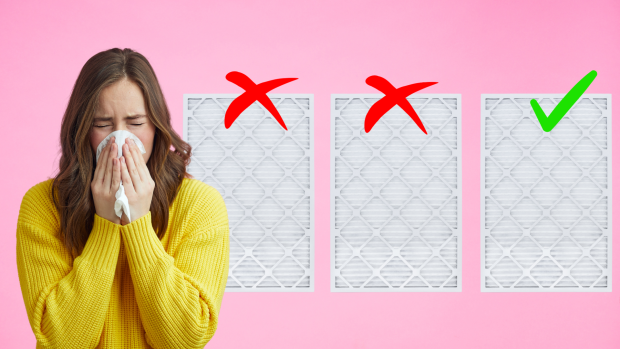- Why Indoor Air Gets Worse in the Winter (and What You Can Do About It)
- 5 Winter HVAC Mistakes You Might Be Making (and How to Fix Them)
- Is Your HVAC Ready for Winter? 5 Things to Check Before the First Cold Snap
- Breathe Happy This Thanksgiving: Why Air Quality Matters When You’re Hosting
- Fall Into Cleaner Air: 5 Reasons to Change Your Air Filter Before the Holidays

Maintaining optimal air quality in your home requires understanding how seasonal changes affect your indoor environment. Different seasons bring unique challenges, from pollen in the spring to dust and dry air in the winter. While it's not strictly necessary to change your air filter type each season, adjusting the MERV rating can enhance your home's air quality and HVAC efficiency. At Filter Time, we're here to guide you through selecting the best air filter for each season.
Spring: Combatting Pollen and Allergens
Challenges: Spring is notorious for high pollen counts, which can exacerbate allergies and asthma.
Filter Recommendation: Use a filter with a higher MERV rating, such as MERV 11 or MERV 13. These filters are more effective at capturing small particles, including pollen, pet dander, and mold spores.
Additional Tips: Check and replace your filters more frequently during the spring, as they can become clogged with pollen and other allergens.
Summer: Managing Dust and Humidity
Challenges: Summer often brings increased dust and higher humidity levels, which can encourage mold growth.
Filter Recommendation: Continue using a higher MERV rating filter, such as MERV 11, to handle the extra dust. If humidity is a concern, consider a filter with antimicrobial properties to prevent mold and mildew.
Additional Tips: Ensure your HVAC system is running efficiently and consider using a dehumidifier to control indoor humidity levels.
Fall: Dealing with Debris and Changing Air Quality
Challenges: Fall can introduce outdoor debris like leaves and dust into your home as you prepare for winter.
Filter Recommendation: Maintain a MERV 8 to MERV 11 filter. These filters balance efficient airflow and effective filtration, capturing larger particles while allowing your HVAC system to run smoothly.
Additional Tips: Clean around your HVAC unit and replace filters before turning on the heating system for the first time in the season to prevent the spread of dust and debris.
Winter: Addressing Dust and Dry Air
Challenges: Winter often brings increased indoor dust due to closed windows and dry air that can stir up particles.
Filter Recommendation: You can opt for a MERV 8 filter during the winter. This rating is sufficient for capturing household dust while ensuring your heating system operates efficiently.
Additional Tips: Use a humidifier to add moisture to the air, which can help reduce dust. Also, keep an eye on your filter and replace it regularly to ensure optimal performance.
General Tips for Year-Round Air Filter Maintenance
- Consistency is Key: No matter the season, regularly check and replace your air filters every 1-3 months. A clogged filter can hinder your HVAC system's performance and reduce air quality.
- Monitor Indoor Air Quality: Pay attention to your indoor air quality and adjust your filter's MERV rating as needed based on any noticeable changes in air quality or health symptoms.
- Consider Your Home's Specific Needs: Homes with pets, smokers, or residents with allergies or respiratory conditions may benefit from higher MERV ratings year-round.
- Professional Maintenance: Schedule regular HVAC system maintenance to ensure it's running efficiently and to catch any potential issues early.
By understanding the unique challenges each season presents and choosing the appropriate air filter, you can maintain a healthy and comfortable indoor environment year-round. At Filter Time, we provide a range of high-quality filters to suit your seasonal needs, ensuring your home remains a sanctuary of clean, fresh air.
« Back to News





